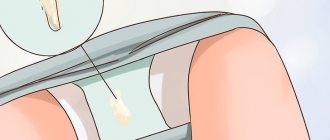Sweating has two main functions: firstly, ensuring heat exchange, and secondly, removing toxins and other waste products of cells. Physiologically, sweat consists of 90% water and 10% waste products that are excreted from the body. Then why does sweat smell like ammonia? Let's try to establish the reasons for this phenomenon.
If we turn to biochemistry, an ammonia smell appears due to the peculiarities of protein breakdown in the human body. Ammonia or, as it is also called urea, uric acid, acts as a by-product of this process. The body normally eliminates these waste products through urine, but failing kidneys can cause these waste products to be disposed of through the pores. Therefore, it is very common to hear that sweat smells like cat urine. In medicine there is a name for this pathology - uridrosis.
Basic information
Before we tell you why sweat smells like ammonia after exercise, we should tell you what this phenomenon actually is.
Sweating is a completely natural biochemical process for the human body. Together with this liquid, harmful waste and toxins are removed from the body. Also, thanks to sweat, heat exchange functions are provided in the body. In addition, sweating normalizes water balance and metabolism in the human body.
According to experts, the secretion of this fluid increases significantly during physical activity (including after training), stressful conditions, being in hot and stuffy rooms or outdoors in the summer, under the sun. Moreover, even in a calm state, approximately 1 liter of sweat comes out of the human body per day.
Brief information
Sweating is a normal function of the human body, which has the purpose of thermoregulation and removal of various harmful substances from the body. There are up to 3 million sweat glands on the human body. Sweating is vital for maintaining normal water-salt balance and metabolism. Sweat consists almost entirely of water with a small admixture of certain substances: sodium chloride, urea and ammonia, as well as various acids: lactic, ascorbic, citric.
Interesting fact
“The smell of fear.” Is this just a figurative phrase or a real reaction of the body to an external source? Research has proven that among all the other glands on the surface of the skin there are indeed sweat wells, which, when certain enzymes are released into the blood, emit characteristic aromas.
Subconsciously, people feel them and react in relation to their opponent, in particular, in accordance with these “data”. A person can emit a wide variety of olfactory signals according to his emotional state: anger, fear, sexual lust, etc. Therefore, in order to be correctly understood, it is necessary that these signals are not distorted by the unpleasant odor of sweat. This additionally signals that the individual is sick, which is why the unpleasant odor of a sweaty body (precisely unpleasant) is so disgusting for a woman.
Pure sweat, on the contrary, can act as an aphrodisiac. This is due to the ancient instinct to mate only with healthy males. Therefore, eliminating odors with deodorants is dishonest, stupid and short-sighted. It is necessary to hiccup and eliminate the cause of the pathology.
Smells
If your sweat smells like ammonia, then it should definitely attract attention. However, it should be noted that such a phenomenon does not always indicate the presence of pathology. After all, the smell of human sweat can change throughout life. The reasons for such changes can be completely different factors (for example, a certain lifestyle of a person, his diet, abuse of bad habits, and so on).
Why does sweat smell like ammonia? Only experienced specialists can answer this question. By the way, they claim that such discharge often has other odors, including fishy, sour, putrid, and even honey.
Excessive sweating
This unpleasant phenomenon has its roots in health conditions, for example, disturbances in nervous activity can easily lead to chronic excessive sweating.
It’s not for nothing that when there is strong excitement or fear, a person sweats profusely. With stable psychological stress, sweating, especially of the palms and feet, becomes chronic. Diseases of the cardiovascular system also lead to similar consequences. If there are additional violations in life support systems, sweat acquires characteristic odors. If there is reason to suspect the presence of such diseases, you should not postpone a visit to the doctor, this can have far-reaching consequences.
Compound
If your sweat smells like ammonia, it means its composition is different from normal. This may be caused by several reasons, which we will tell you about below.
According to reports from experts, human sweat normally contains the following substances: water (about 90%), urea, sodium chloride, ammonia, ascorbic, lactic and citric acid.
In a healthy person who follows all the rules of personal hygiene, such discharge does not have an unpleasant odor. If your sweat smells like ammonia or has any other strong and specific aroma, you should immediately consult a doctor. In this case, the doctor is obliged to prescribe a medical examination in order to exclude the development of serious diseases.
We identify illness by the smell of sweat
Normally, sweat does not smell of anything.
When a man smells an unpleasant amber, in any case the smell will be associated with something.
Medical specialists can assume one or another disease in the body.
Let's look at the dependence in the table.
| What does sweat smell like? | Alleged cause |
| Boiled cabbage | Liver/kidney disorders. |
| Rotting apples | Diabetes mellitus, ketoacidosis. |
| Rotten fish | Metabolic disorder. |
| Sweat smells like sour milk | Tuberculosis. |
| Hydrogen sulfide | Ulcerative/erosive lesions of the stomach. |
| Rotten meat | Oncological process. |
| Sheep wool | Adrenal dysfunction. |
Sweat smells like ammonia after exercise: causes of the unpleasant phenomenon
If the discharge in the form of sweat has acquired a pungent ammonia smell, then enhanced hygiene alone is unlikely to be enough. Indeed, very often this condition indicates a malfunction of internal systems or organs. To identify the exact cause of this pathology, you should consult a specialist.
Let's look at the main reasons why sweat smells like ammonia, right now.
Folk remedies
- Sage decoction. One cup of this herbal decoction (without sugar) significantly reduces sweating and tones, especially in the summer heat.
- Vegetable oils. If the oily skin allows it, i.e. If it is dry, you can wipe it with eucalyptus, pine and sage oils and add a little to baths.
- Aqueous solutions. Solutions made from a decoction of oak bark and sage, potassium permanganate, and table salt are excellent for foot baths. After the baths, the feet are thoroughly dried with a towel without rinsing.
Modern deodorants appeared only in the middle of the last century, and this does not mean that before all people smelled unpleasant. It’s a stereotype that there used to be difficulties with hygiene. At all times, there have been people with different attitudes towards personal hygiene, for example, you can look into any poor neighborhood, for example, in Bombay. There you can clearly see how people can live even in the 21st century. Therefore, what smell will come from a person’s body depends only on him. And there are no excuses unless he is old or incredibly sick.
Well, in general, if your feet sweat a lot, then make yourself baths from 1. medicinal herbs. Add decoctions of sage leaves, horsetail, rose hips, and pomegranate peel. from oak bark. Pour 200 g of bark into a liter of water and boil for 20 minutes. Add the strained broth to cool water at the rate of one tablespoon per liter of water. 2. from a solution of potassium permanganate. At night, take a foot bath, then dry your feet with a soft towel. Rub between your fingers with cologne diluted half with water. 3. from a solution of table salt. Rinse your feet with a warm solution (1-5 tablespoons of salt per liter of water). Without rinsing, wipe dry. 4. Or buy Teymurov paste at the pharmacy and treat your feet with it.
One of the vital functions of the human body is sweating. There is no such person who does not sweat. But for some it is invisible and imperceptible to the senses of smell, while for others it produces very unpleasant “odors”.
Such changes are explained by poor diet, lifestyle, bad habits and other factors. The smell of human sweat can be sour, fishy and even honey-like. Many people also experience the unpleasant phenomenon of sweat smelling like ammonia. Before eliminating such a pathology, it is necessary to understand what causes this smell and what human sweat is.
Development of diabetes mellitus
It is no secret that with this disease, the level of glucose in the blood increases significantly. This pathological condition often leads to malfunctions of the internal glands.
If your sweat has a strong smell of ammonia, is also released in large quantities and is accompanied by dryness of the oral mucosa and weight gain, then you should definitely visit a doctor and take a blood test to determine the level of sugar in it. By the way, a special diet and proper nutrition can successfully cope with this problem.
Fishy smell: excess trimethylamine or gardnerellosis
If a person smells like fish, and even rotting fish, then he most likely suffers from trimethylaminuria. The cause of this syndrome is a rather rare genetic disease that develops against the background of a mutation in the FMO3 gene. It is responsible for the production of the enzyme flavin monooxygenase-3, which is involved in the processing of a digestive byproduct, trimethylamine.
If there is no such enzyme, the substance accumulates in the body, combines with other body secretions (urine, sweat, exhaled air) and becomes the cause of a characteristic fishy odor. Substances that produce trimethylamine during digestion are choline, carnitine, and lecithin. Accordingly, people with trimethylaminuria syndrome are not recommended to eat foods containing them.
But the smell of rotten fish in vaginal discharge is a characteristic symptom of bacterial vulvovaginitis (gardnerellosis). Its causative agents are Gardnerella bacteria, which are normally opportunistic microorganisms. But when the acid-base balance of the vaginal environment is disturbed or when the immune system is weakened, they begin to multiply too actively and simultaneously produce volatile amines - putrescine and cadaverine.
This is what people who suffer from the genetic disease tyrosinemia smell like. There are several varieties of this disease, but their essence is the same: due to certain mutations, the body cannot produce enzymes that break down the amino acid tyrosine. As a result, the body accumulates amino acids such as tyrosine, methionine and phenylalanine.
People suffering from another hereditary metabolic disorder smell like cheese (or “sweaty feet” - it all depends on perception). This time we are talking about congenital deficiency of the enzyme isovaleryl-CoA dehydrogenase. Against the background of its absence, isovaleryl-CoA accumulates in the body, which, as a result of hydrolysis, turns into isovalerate and is excreted in sweat and urine. It is isovalerate that gives the characteristic smell of cheese.
Hormonal imbalances
Why does sweat smell like ammonia in women and men? If a person’s thyroid gland does not function properly, then a lack or, conversely, an excess of iodine may occur in his body. In this case, a huge number of unpleasant symptoms appear, among which the smell of ammonia from sweat is especially noticeable. The primary task when such a problem arises is to consult an experienced endocrinologist.
Unpleasant odor in women and men
In earlier times of our past, when medicine was poorly developed, an experienced doctor could make a diagnosis by the smell of sweat.
When visiting a dermatologist, he will ask you about the presence of stressful situations, how often does the smell of urine appear, does anything affect its change, do you notice that the smell may decrease or worsen? You will also need to take blood and urine tests. If necessary, even sweat can be examined.
Don’t be surprised, because the smell of cat urine when sweating in women and men can be caused by an infection in the body, and it can also be a sign of diabetes
It is also worth paying attention to the medications you have taken recently, especially if they are antibiotics or antidepressants made on the basis of penicillin
With an abundance of chemical compounds and unnecessary substances in the body, the liver cannot cope and performs its functions in a weakened mode, which can also cause an unpleasant odor.
If you have food poisoning or an infection, your liver and kidneys can react by releasing large amounts of toxins into your bloodstream, which also leads to the smell of cat urine. This reaction is called Uridrosis.
Uridrosis is dangerous not because of unpleasant odors, but because dangerous processes of inflammation of internal organs arise in the body, which in turn leads to kidney or liver failure.
Athletes who consume protein often face the problem of unpleasant body odor. Such an organism contains a lot of protein, which must be compensated for by carbohydrates. With a lack of carbohydrates, the body's excretory system cannot cope with proteins, which provokes an unpleasant odor of cat urine from the body.
Unpleasant body odor can also be caused by hormonal changes, menopause in women, and puberty in adolescents.
Often, the food we eat also causes unpleasant body odor. In this case, spicy, fried and spicy foods, as well as drinks containing caffeine, should be excluded from the diet. Eat more vegetables and fruits. It is not recommended to drink a lot of beer, as it disrupts kidney function.
In any case, it is better to contact a specialist in time.
Along with inflammatory processes, sweat can smell like cat urine due to heredity. In this case, your assistant will be regular showers, baths with the addition of decoctions of various herbs that have antiseptic properties, peony flowers, chamomile, sage, thyme. If possible, wear clothes made from natural fabrics that allow your skin to breathe.
Buy yourself deodorants, preferably alcohol-based, which creates an acidic environment that prevents bacteria from growing and neutralizes the smell of sweat. Walk outdoors more often, if possible visit the pool or sauna. Lead a healthy lifestyle, make sure your diet is correct, eat more fresh fruits and vegetables, and do not overeat. Stop smoking and alcohol, especially beer.
Don’t forget that there are now excellent remedies that eliminate the causes of sweat smelling like cat urine in men and women. Find out more!
IT IS IMPORTANT TO KNOW! The best remedy for HYPERHIDROSIS and diseases associated with excessive sweating, recommended by our readers!
Other reasons
Why does my sweat smell like ammonia after exercise? This unpleasant phenomenon may be associated with a lack of vitamins B and D in the human body. Nervous system disorders, including neuroses and vegetative-vascular dystonia, can also contribute to a similar condition.
The smell of sweat often changes during nervous overload (for example, during conflicts, frequent stressful conditions and experiences), as well as with insomnia and other sleep disorders.
It should also be said that the condition in question may appear against the background of the development of mastopathy. A mammologist treats and diagnoses this disease.
Another fairly common cause of ammonia sweat odor is the constant consumption of spicy and sour foods.
Recommendations
It happens that it is not possible to recover. Or some people are predisposed to such a smell at the genetic level. It is for them that this is not considered a pathology. For all these cases, there are several recommendations on how to make life easier and deal with a specific odor. These recommendations are suitable for people who have just started taking a course of drug therapy.
- Wash daily. In winter – 1 time, in summer – 2 times. People who play sports should wash after each workout.
- When washing, it is better to use antibacterial soap.
- It is better to avoid shampoo.
- After a shower, problem areas should be treated with antiperspirants.
- Choose clothes and shoes from natural materials.
- People with excessive sweating need to change clothes more often.
- Improve your diet - reduce the amount of fatty and fried, salty and smoked foods.
- Avoid drinking alcoholic beverages, especially beer.
- Engage in moderate exercise and swimming to improve your metabolism.
Remedies
If the smell of ammonia in sweat was caused by one or another disease, then to eliminate it, the root cause should be treated. If a person is completely healthy, then if there is an unpleasant body odor, you only need to pay special attention to personal hygiene. After all, it is uncleanliness that provokes the active growth of bacteria, which, in fact, causes this terrible aroma.
So, the ammonia smell of sweat can be eliminated by the following measures:
- You should take a shower or bath every day. In the winter season, this must be done once a day, and in hot and warm months - at least three times. It should also be noted that those who are passionate about active sports should take a shower after each workout. In this case, areas of increased sweating (for example, the groin area, armpits, etc.) must be washed very thoroughly, using high-quality and fragrant soap (for example, with an antibacterial effect). By the way, the choice of shampoos and other products should be approached with special care. After all, many of them contain ingredients that dry out the skin, making it vulnerable to pathogenic bacteria. Therefore, experts recommend using only natural remedies based on herbs or other natural elements.
- After taking a shower or bath, areas of increased sweating should be treated with special products (for example, deodorant or antiperspirant). They must be of high quality and hypoallergenic.
- A person's clothing should be made only from high-quality fabrics (for example, cotton or linen). This is due to the fact that only such materials are able to ensure normal ventilation of the skin, as well as prevent excess sweating and allow the already released moisture to evaporate faster from the surface of the body. If you experience excessive sweating, including the ammonia smell of sweat, wearing synthetic clothing is strictly prohibited.
- If your clothes are wet from sweat, you should not walk in them for too long, since waterlogged fabric provides a favorable environment for the growth of various bacteria. At the first opportunity, change your wet shirt to a dry and clean one.
- In summer, only open shoes should be worn. If you cannot do without closed shoes, then it is recommended to wear thin socks so that your feet sweat a little less.
- To eliminate the ammonia odor of sweat, you should reduce your intake of sour, spicy and fatty foods. It is also necessary to drink less alcoholic beverages.
- Spend as much time as possible on physical exercise, because regular exercise allows you to get rid of excess weight, improve metabolism and speed up the removal of toxins from the body.
- In some cases, to eliminate the ammonia odor of sweat, experts recommend that their patients take pharmaceutical products that contain zinc and aluminum. According to them, such elements prevent the proliferation of harmful microorganisms, reducing the pungent odor of ammonia from sweat.
It should also be said that some folk recipes also successfully help get rid of the problem in question. For example, many people take baths with the addition of sage infusion, pine or eucalyptus oils, oak bark, potassium permanganate or salt.
Therapy for ammonia odor from sweat glands
The provoking factor of the syndrome is established. The smell of ammonia when secreting sweat is a secondary clinical sign; the cause must be treated.
Drug therapy
If the cause of the unpleasant odor is impaired functioning of the renal system, a diuretic drug is prescribed, for example, Spironolactone, and drugs are used to stimulate blood circulation in the affected organ, for example, Eufilin.
When pathological liver syndrome acts as a provoking factor, a medication from the group of hepatoprotectors, Galstena, is prescribed.
An excessive concentration of sugar in the blood requires therapy; various insulins and sugar substitutes are used.
Folk remedies
The use of traditional recipes will help you get rid of the symptom, but the disease will not disappear. Before using traditional medicine methods, you should consult your doctor to see if they are compatible with the drug course of treatment.
A common recipe is taking baths with eucalyptus. The water temperature should be no more than 40 degrees. 5 drops of eucalyptus will be enough. The duration of the procedure is about 20 minutes, baths should be taken every other day for 14 days.
Some people practice baths with the addition of pine oil; the technique is similar to that described above; instead of eucalyptus oil, you need to add five drops of the pine ingredient.











